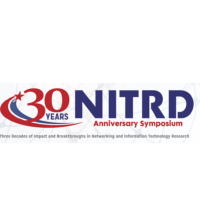
NITRD 30th Anniversary Commemoration
The Networking and Information Technology Research and Development (NITRD) Program is the Nation’s primary source of federally funded work on pioneering information technologies (IT) in computing, networking, and software. On December 9th, 2021 the 30th Anniversary of the NITRD program occurred during the height of the pandemic, and accordingly a virtual commemoration was held on December 2nd, 2021 to celebrate the incredible achievements of the last 30 years while maintaining social distancing measures. While the anniversary has passed we will be hosting an in-person event on May 25th, 2022 in Washington, D.C. to commemorate this milestone.









